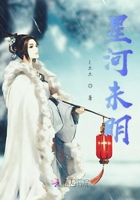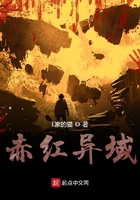On the morning of the twenty-sixth Duane rode into Bradford in time to catch the early train. His wounds did not seriously incapacitate him. Longstreth was with him. And Miss Longstreth and Ruth Herbert would not be left behind. They were all leaving Fairdale for ever. Longstreth had turned over the whole of his property to Morton, who was to divide it as he and his comrades believed just. Duane had left Fairdale with his party by night, passed through Sanderson in the early hours of dawn, and reached Bradford as he had planned.
That fateful morning found Duane outwardly calm, but inwardly he was in a tumult. He wanted to rush to Val Verde. Would Captain MacNelly be there with his rangers, as Duane had planned for them to be? Memory of that tawny Poggin returned with strange passion. Duane had borne hours and weeks and months of waiting, had endured the long hours of the outlaw, but now he had no patience. The whistle of the train made him leap.
It was a fast train, yet the ride seemed slow.
Duane, disliking to face Longstreth and the passengers in the car, changed his seat to one behind his prisoner. They had seldom spoken. Longstreth sat with bowed head, deep in thought.
The girls sat in a seat near by and were pale but composed.
Occasionally the train halted briefly at a station. The latter half of that ride Duane had observed a wagon-road running parallel with the railroad, sometimes right alongside, at others near or far away. When the train was about twenty miles from Val Verde Duane espied a dark group of horsemen trotting eastward. His blood beat like a hammer at his temples.
The gang! He thought he recognized the tawny Poggin and felt a strange inward contraction. He thought he recognized the clean-cut Blossom Kane, the black-bearded giant Boldt, the red-faced Panhandle Smith, and Fletcher. There was another man strange to him. Was that Knell? No! it could not have been Knell.
Duane leaned over the seat and touched Longstreth on the shoulder.
"Look!" he whispered. Cheseldine was stiff. He had already seen.
The train flashed by; the outlaw gang receded out of range of sight.
"Did you notice Knell wasn't with them?" whispered Duane.
Duane did not speak to Longstreth again till the train stopped at Val Verde.
They got off the car, and the girls followed as naturally as ordinary travelers. The station was a good deal larger than that at Bradford, and there was considerable action and bustle incident to the arrival of the train.
Duane's sweeping gaze searched faces, rested upon a man who seemed familiar. This fellow's look, too, was that of one who knew Duane, but was waiting for a sign, a cue. Then Duane recognized him--MacNelly, clean-shaven. Without mustache he appeared different, younger.
When MacNelly saw that Duane intended to greet him, to meet him, he hurried forward. A keen light flashed from his eyes. He was glad, eager, yet suppressing himself, and the glances he sent back and forth from Duane to Longstreth were questioning, doubtful. Certainly Longstreth did not look the part of an outlaw.
"Duane! Lord, I'm glad to see you," was the Captain's greeting.
Then at closer look into Duane's face his warmth fled--something he saw there checked his enthusiasm, or at least its utterance.
"MacNelly, shake hand with Cheseldine," said Duane, low-voiced.
The ranger captain stood dumb, motionless. But he saw Longstreth's instant action, and awkwardly he reached for the outstretched hand.
"Any of your men down here?" queried Duane, sharply.
"No. They're up-town."
"Come. MacNelly, you walk with him. We've ladies in the party.
I'll come behind with them."
They set off up-town. Longstreth walked as if he were with friends on the way to dinner. The girls were mute. MacNelly walked like a man in a trance. There was not a word spoken in four blocks.
Presently Duane espied a stone building on a corner of the broad street. There was a big sign, "Rancher's Bank.""There's the hotel," said MacNelly. "Some of my men are there.
We've scattered around."
They crossed the street, went through office and lobby, and then Duane asked MacNelly to take them to a private room.
Without a word the Captain complied. When they were all inside Duane closed the door, and, drawing a deep breath as if of relief, he faced them calmly.
"Miss Longstreth, you and Miss Ruth try to make yourselves comfortable now," he said. "And don't be distressed." Then he turned to his captain. "MacNelly, this girl is the daughter of the man I've brought to you, and this one is his niece."Then Duane briefly related Longstreth's story, and, though he did not spare the rustler chief, he was generous.
"When I went after Longstreth," concluded Duane, "it was either to kill him or offer him ******* on conditions. So I chose the latter for his daughter's sake. He has already disposed of all his property. I believe he'll live up to the conditions. He's to leave Texas never to return. The name Cheseldine has been a mystery, and now it'll fade."A few moments later Duane followed MacNelly to a large room, like a hall, and here were men reading and smoking. Duane knew them--rangers!
MacNelly beckoned to his men.
"Boys, here he is."
"How many men have you?" asked Duane.
"Fifteen."
MacNelly almost embraced Duane, would probably have done so but for the dark grimness that seemed to be coming over the man.
Instead he glowed, he sputtered, he tried to talk, to wave his hands. He was beside himself. And his rangers crowded closer, eager, like hounds ready to run. They all talked at once, and the word most significant and frequent in their speech was "outlaws."MacNelly clapped his fist in his hand.
"This'll make the adjutant sick with joy. Maybe we won't have it on the Governor! We'll show them about the ranger service.
Duane! how'd you ever do it?"
"Now, Captain, not the half nor the quarter of this job's done.
The gang's coming down the road. I saw them from the train.
They'll ride into town on the dot--two-thirty.""How many?" asked MacNelly.















